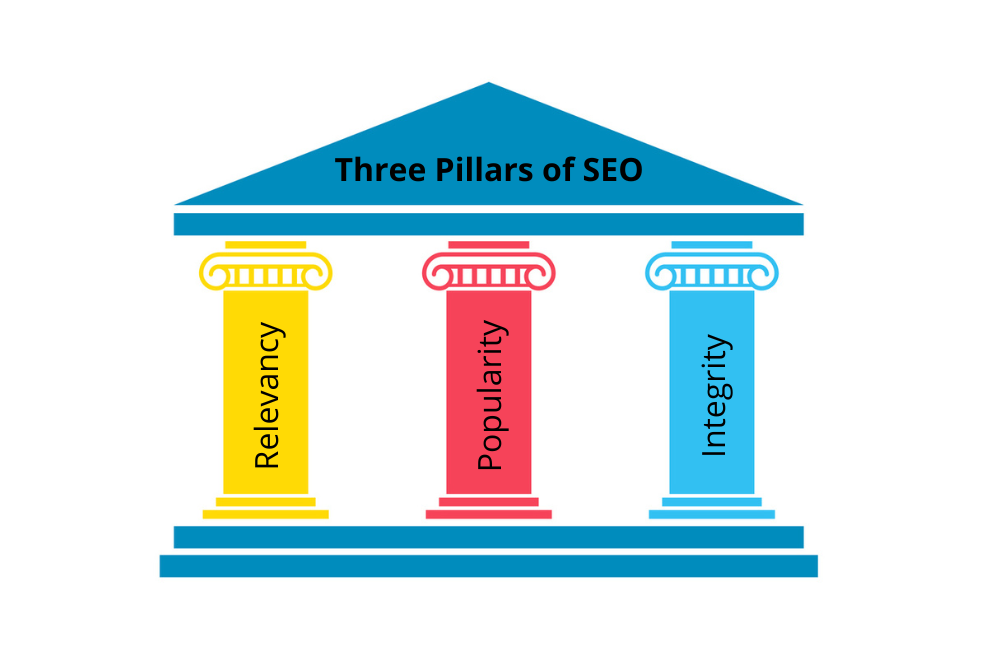Every successful SEO strategy is built on three essential pillars: technical SEO, on-page SEO, and off-page SEO. Mastering all three ensures your website ranks higher, attracts the right audience, and turns visitors into customers.
Search engine optimization can often feel overwhelming because there are so many factors to consider. But when you break it down to its foundation, everything falls into three categories—each playing a crucial role in how search engines evaluate and rank your website.
At Nickel SEO, we use this framework to design SEO strategies that are simple, measurable, and effective. Let’s explore each of the three pillars and why they matter for your business.
Imagine your website as a house. Technical SEO is the foundation, wiring, and plumbing—things most visitors don’t see, but if they’re broken, the whole house falls apart. Search engines like Google must be able to find, crawl, and understand your site before they can rank it.

Without strong technical SEO, even the best content may never reach its audience. Technical issues act as barriers, blocking search engines from fully recognizing your value.
At Nickel SEO, our SEO audits uncover hidden technical problems so you can remove roadblocks and give your site the foundation it needs to rank.
Once your foundation is strong, it’s time to focus on the walls, paint, and furniture—the elements people actually see. On-page SEO covers everything visible on your website: the words, images, structure, and layout that tell both search engines and users what your site is about.
Search engines want to deliver the best possible result for each query. On-page SEO ensures your pages are not only optimized for algorithms but also genuinely helpful to real people.
For example, a service page about “Dental SEO” shouldn’t just mention the term—it should explain benefits, outline the process, answer common questions, and link to related services. This builds topical authority and improves conversions.
We specialize in content marketing and SEO content writing that combine keyword precision with engaging storytelling, so your site resonates with both Google and your customers.
Even with a strong foundation and optimized content, your site needs credibility signals from outside sources. That’s where off-page SEO comes in. It’s about showing search engines that others trust, reference, and recommend your business.
Google’s algorithm weighs authority heavily. If multiple authoritative sites link to yours, Google assumes you’re a credible source worth ranking.
Our reputation management and local SEO services strengthen your brand’s trust and visibility, ensuring you’re the business customers choose over competitors.
Think of SEO as a stool with three legs: technical, on-page, and off-page. If one leg is missing, the stool collapses. Together, these pillars create a balanced, holistic strategy that:
The result? Higher rankings, more traffic, and more conversions.
SEO success doesn’t come from chasing shortcuts—it comes from consistently strengthening these three pillars over time.
At Nickel SEO, we use a proven process to audit, optimize, and grow each pillar for service-based businesses across Dallas–Fort Worth and beyond. Whether you’re struggling with technical issues, need better content, or want to outrank competitors in local search, our team delivers strategies that generate measurable ROI.
Contact Nickel SEO today to start building a solid SEO foundation that gets your business seen, trusted, and chosen.

We specialize in web design, SEO services, and many other digital marketing services to help businesses attract more customers and increase revenue. We focus on creating effective strategies that drive traffic, improve search rankings, and build trust online. Our efforts are entirely dedicated to increase your sales with results driven and award winning digital marketing service.
Call if you're interested in real results and a real ROI.
9705 Tehama Ridge Pkwy Suite 257 Fort Worth, TX 76177
Monday – Friday, 9:00 am – 6:00 pm
Career Opportunities